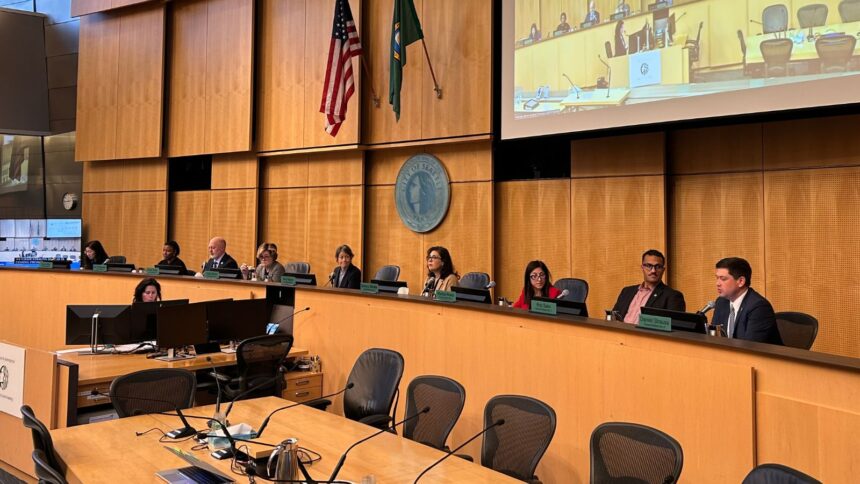Adopted 2025-2026 City Budget marks a major shift in tone
Today the Seattle City Council voted 8-1 to adopt the 2025-2026 Biennial Budget and Capital Improvement Program along with several pieces of legislation necessary to implement the budget. The budget uses Payroll Expense Tax revenue in the JumpStart Fund to offset the $268 million operating deficit and minimize employee layoffs.
Highlights in the final version praised by Council President Sara Nelson (Position 9) include:
- Historic investments in affordable housing. The 2025-2026 adopted budget makes a historic $342 million investment in affordable housing, a nearly fivefold increase in such funding to the Office of Housing since 2019. The budget also adds $5.2 million in renter assistance.
- Increased public safety investments. Building on the Mayor’s proposed public safety spending, the Council’s budget also restores prosecutor positions in the City Attorney’s Office, adds dedicated staff to the 911 Emergency Communications Dispatcher for improved non-emergency line response, adds a position to process firefighter applications faster, and funds neighborhood safety ambassadors, among other measures.
- Saving the Seattle Channel. The channel’s award-winning local journalism and cultural programming is funded through 2026 and a related bill in the package directs the Executive to establish a long-term, stable funding plan using a diversified mix of fund sources that are identified in the legislation.
- Additional homelessness housing and shelter. The Council’s budget includes $3.2 million to provide more non-congregate shelter beds, $4 million for YouthCare’s Constellation Center, $1.5 million to move residents of RVs into shelter, and $168,000 to Uplift Northwest to provide transitional housing.
- Substance use disorder treatment. The budget includes $470,000 to fund recovery support services for individuals with severe opioid use disorder as well as $450,000 to purchase a mobile medication unit to broaden access to treatment for individuals struggling with opioid use disorder on 3rd Avenue near Pike and Pine streets, and in Little Saigon.
- Restoring the Storefront Repair Fund and other Small Business Support. This high-demand grant program partially reimburses business owners for the cost to repair damage to their building due to break-ins in exchange for specific public benefits. In addition, the budget directs the Office of Planning and Development to explore extending other existing resources to Black and Brown entrepreneurs at risk of displacement or struggling to access capital.
- Reporting and accountability measures. The adopted budget includes at least three dozen Statements of Legislative Intent (SLIs) that call for specific reporting on various City programs and initiatives to ensure spending is scrutinized and directed toward each dollar’s best use.
“The budget passed today is responsive to our constituents’ top priorities and represents a seismic shift toward budgeting practices that scrutinize every dollar spent while ensuring investments in priorities that keep citizens’ informed, such as the Seattle Channel,” Council President Nelson said. “I commend Mayor Harrell and my colleagues, especially our new members, for approaching this process as a serious opportunity to comb through City finances and put the City on sound fiscal footing for the years ahead.”
Despite diverting JumpStart tax funds for General Fund expenses to balance the operating deficit and avoid the need for additional revenue, the final budget package’s $344 million investment in housing in 2025 is the largest such investment in Seattle’s history.
“Fiscally, we’re not out of the woods yet,” noted Council President Nelson. “This budget isn’t perfect and there is more work ahead. But moving forward we are better positioned to make informed decisions about our investments and demonstrate our commitment to being accountable stewards of public resources.”
Background
Mayor Bruce Harrell presented his budget package to the Council on Sept. 24. The Council then focused exclusively from late September through late November on creating an amended budget. This year’s budget process was led by Select Budget Committee Chair Dan Strauss (District 6) and it included two dedicated hearings for members of the public to give feedback on Oct. 16 and Nov. 12.
More detailed information on the Council’s budget process and timeline can be found on this webpage.
# # #


